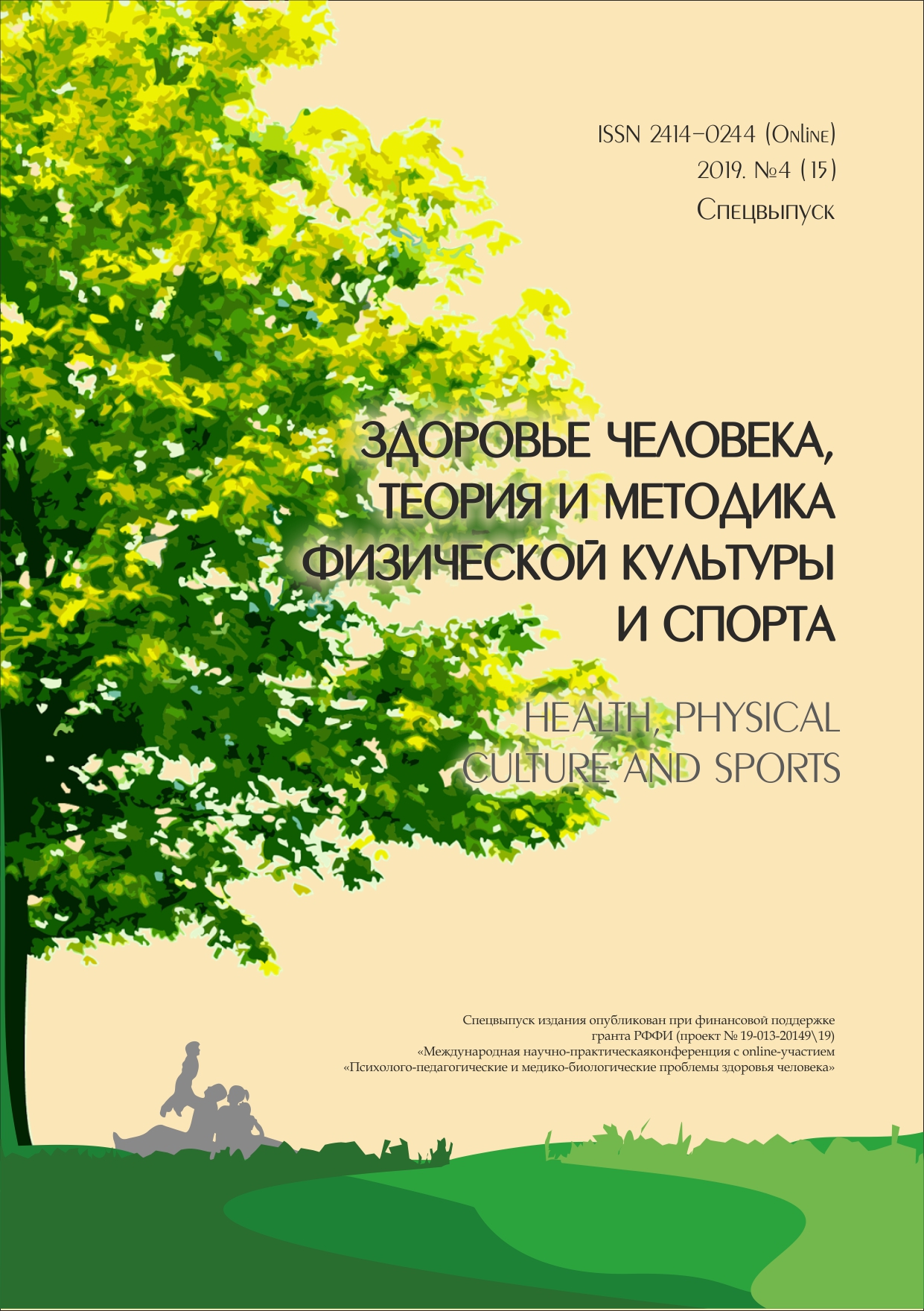PSYCHO-HYGIENIC ACCOMPANIMENT OF ADAPTATION OF STUDENTS DURING INTERSTATE EDUCATIONAL MIGRATION
Abstract
The article examines the processes of adaptation and socialization of foreign students in the process of learning in the university in order to develop methods of psycho-hygienic support of the process of adaptation to prevent possible negative consequences. Among the reasons that prevent adequate adaptation, there is a diŸerence in outlook and upbringing, ethnic vectors of behavioral responses and moral norms in society, religion, degree of religiosity, language and social barriers. In the work were used test methods of psychological research: — test for emotional intelligence (test N. Hall’s EQ); — test L. V. Yankovskiy “Adaptation of the person to a new socio-cultural environment”; — PGI test (Perceived Guilt Index) “Perceived guilt index”. e following types of adaptation have been studied: — radical, hyperadation, harmonic, conformystical, deviant, and socio-psychological maladjustment. It is shown that the process of socialization of migrant students in the conditions of educational migration is carried out in waves: the rst peak — deviant adaptation begins with the arrival of the student in the recipient country, and is caused by the lack of information about the legal eld and customs, moral and ethical standards society and language barrier. During this period, it is extremely important to provide complete information about the social arrangement of society, legal and moral and ethical rules, conducting psy-hygienic trainings in the students’ native language. To prevent the manifestation of elements of deviant or delicate behavior, it is necessary to pay attention to the initial state of internal components of behavioral reactions: motivation and purposefulness, level of cognitive processing of new information ows, emotional reactions, self-regulation processes, and readiness for socialization in new conditions.
Downloads
References
Алексанова О. Е. Социально-психологические особенности жизнеспособности эмигрантов // Социальные и гуманитарные науки на Дальнем Востоке. Хабаровск. Т. 15, № 4. 2018. С. 99–106.
Ананко Л. Міграційні ризики освітнього процесу в Україні // Ефективність державного управління: зб. наук. пр. 2011. № 4. С. 33–38. URL: http://archive.nbuv.gov.ua/portal/socgum/Edu/201127/ fail/ananko.
Андрусова С. С. Кураторство, как фактор успешной адаптации первокурсников // Тенденции развития науки и образования. № 38. 2018. С. 50–52.
Беспалова Т. М., Филиппова Т. В. Модель социально-психологической адаптации студентов в ВУЗе // Психологическое благополучие современного человека: Международная заочная науч.-практ конф. 11 апреля 2018 г.: тезисы докл. Екатеринбург, 2018. С. 280–283.
Дрожжина Д. С. Изучение адаптации иностранных студентов: дискуссия о методологии // Universitas. Журнал о жизни университетов. 2013. Т. 1, № 3. С. 33–47.
Змановская Е. В. Психология девиантного поведения: структурно-динамический подход: автореф. дис. … докт. психол. наук. СПб., 2006. 28 с.
Казанцева А. А. Тьюторское сопровождение процесса адаптации иностранных студентов в вузе // Высшее образование в России. 2012. № 10. С. 157–161.
Клейберг Ю. А. Социальные нормы и отклонения. Кемерово, 2001. 234 с.
Константинов В. В. Стратегии поведения мигрантов в процессе их социально-психологической адаптации к новым условиям жизни // Мир науки, культуры, образования. № 2 (69). 2018. С. 422–425.
Назарко С. О., Іноземцева А. Е. Освітянська міграція та її вплив на національний інтелектуальний капітал // Економіка та держава. 2014. № 6. С. 128–130.
Никулина Т. И., Волчугова А. Ю. Социально-психологическое сопровождение процесса адаптации студентов-первокурсников на начальном этапе обучения в ВУЗе // Человек в условиях неопределенности: Междунар. науч. конф., 3–5 окт. 2018 г.: тезисы докл. Самара, 2018. С. 197–200.
An author should not normally publish manuscripts describing essentially the same research in multiple journals or publication venues. Such redundant publication is generally considered to constitute unethical publishing behavior, and if discovered may result in a manuscript under consideration being rejected, or a published article being retracted.
Authors of manuscripts reporting on original research should present an accurate account of the work performed, accompanied by an objective discussion of its significance. Underlying data should be represented accurately in the manuscript. The manuscript should contain sufficient detail and references to permit others to replicate the work. The fabrication of results and the making of fraudulent or knowingly inaccurate statements constitute unethical behavior and may be cause for rejection or retraction of a manuscript or published article.





